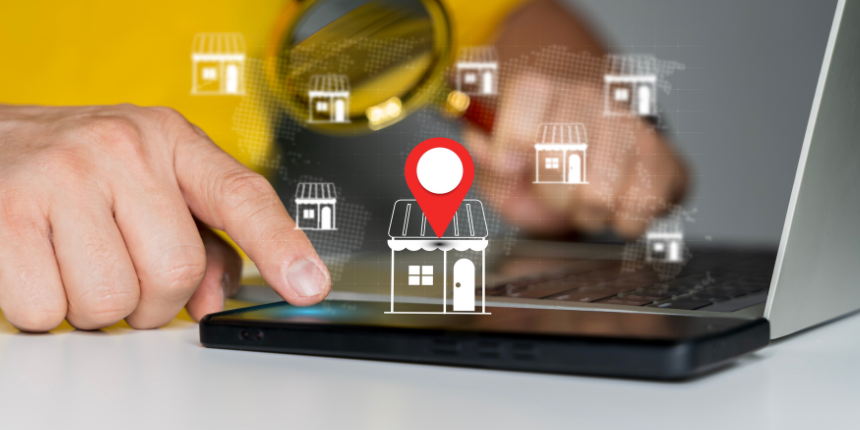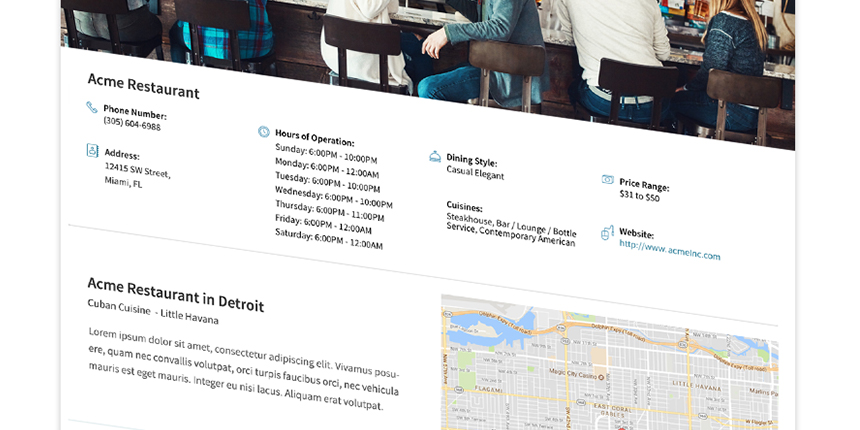
Maximize your local presence through strategic location management.

As growing restaurant businesses expand to more and more locations, it becomes increasingly important for each location to have its own landing page. After all, small businesses may be able to get away with a single page that covers all their locations, but that’s simply not practical for larger restaurant chains—especially when there are significant SEO and UX benefits on the table.
Here are our top five reasons why local landing pages are essential for any business with a distributed local footprint, particularly restaurants, coffee shops, and other foodie establishments.
Online references to your business’s name, address, and phone number (NAP)—usually referred to as citations—are one of Google’s most important ranking factors. By linking each of your listings to a corroborating landing page, you will show Google that the information is accurate and reliable. But the opposite is also true: conflicting information is known to be a significant negative SEO factor.
Once every location has a landing page, UTM and other tracking methods can be applied to better understand your traffic sources. With tracking on individual location pages, you will be able to distinguish how and why people are searching for—and clicking through to—your business. That makes accurate attribution much easier.

For example, if a user follows a paid ad to your store locator and then requests directions to your location, you can be sure that their interest was generated by your paid marketing efforts and was not simply a result of an organic query.
It may be acceptable for a small business to have just one page covering its half-dozen locations, but larger brands should not direct locally qualified traffic to a generic, brand-level page. By the nature of their searches, these users are interested in a specific location and will only bounce away from a brand page that fails to address their query. That’s may cost you a potential customer now and in the future—high bounce rates also harm your organic ranking.
When a user searches for a local business on a site like Google Maps, they have shown local intent for that specific location. Again, a local landing page will provide them with the timely, relevant information they are looking for much more efficiently than a brand page.
For example, a driver who is looking for somewhere to stop for lunch will most certainly care if there is parking at that location. A single click to that restaurant’s specific landing page will give them the information they need to proceed.

Importantly, this kind of information cannot always be uniform across locations. Parking, wheelchair accessibility, highchair availability, and other amenities are all factors in customers’ dining decisions—and they can all vary from location to location.
Subscribe to our monthly newsletter.
Here’s the kicker: users who are interested in viewing a local landing page are also interested in completing calls-to-action directly on that page. After finding the amenity or menu information they were searching for, users should be able to move directly from evaluation to decision.
Need driving directions? You don’t have to click back to your search results—they’re right here. Want to make a reservation? Click to call (or ask Google Assistant to book a table). Want to order a delivery from this location? Step right up.
A local landing page should keep users engaged with your brand. When all relevant calls-to-action are available on local landing pages as well as your online listings, the high engagement and retention rates of both these customer touchpoints will drive measurable growth and greatly improve your SEO.
Want to create effective local landing pages? Our store pages and store locators are tailormade for businesses like yours. We can anticipate how queries will be phrased, render content in a way that ensures indexing by major search engines—and make it easier than ever to manage your locations’ hours, amenities, menus, and more.
It all starts with a friendly chat, so contact DAC today.
Maximize your local presence through strategic location management.
Maximize your local presence through strategic location management.
Subscribe to our monthly newsletter.